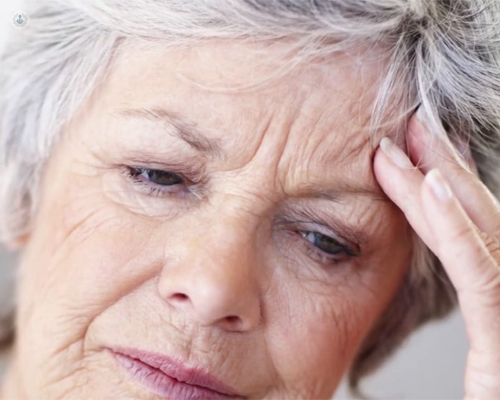Migraine and feeding
Written by:People who have migraine suffer from severe headaches with a disabling nature , that is, the symptoms prevent them from being able to perform any activity normally.. Migraine is very difficult to fight, even with specific medication for it, and there is no cure, but you can work to prevent new episodes of pain. Food has a very important role to achieve it.
Causes of migraine
Migraine can be triggered by many causes:
-Stress.
- Hormonal factors (menstruation).
Food allergies that provoke an inflammatory response of the body.
-drugs
-Bajadas blood sugar (hypoglycemia).
-Little sleep or insufficiently.

All these factors can cause headache to be triggered, although 95% of migraines are related to an enzymatic deficit or. It is DiAmino Oxidase (DAO), an enzyme found in the small intestine that metabolizes (digests) histamine. Histamine is a substance found in all foods. For this reason it is not possible to eliminate it completely from the diet.
In a healthy person, histamine from food is metabolized in the intestine and eliminated in the urine. People with a deficit of the DAO enzyme do not have the capacity to metabolize it correctly and instead of eliminating it, it accumulates in blood and tissues.
The main causes for which a person may have a deficit of the enzyme DiAmino Oxidase are: genetics: (the most frequent cause), medication consumption (analgesics, antihistamines, antidepressants, antihypertensives, diuretics, expectorants, mucolytics, and antibiotics among others) ), diseases: especially inflammatory intestinal diseases such as Crohn's.
The accumulation of histamine in the body by a DAO deficit can produce more symptoms than migraine. Among the most common are: eczema, psoriasis, itchy skin, edema, muscle pain and fibromyalgia, hirritable colon, constipation , abdominal swelling, nausea, dizziness, bone pain (especially in the spine), ups and downs of Blood pressure, etc.
There are analytical tests to know if a person has a deficit of the enzyme DiAmino Oxidase. It is done in medical centers and hospitals.
What foods should be avoided
There is no direct temporal relationship, cause - effect, between the consumption of food and the headache. For this reason it is difficult for one to relate the consumption of certain foods with the headaches that suffer. Migraine occurs when histamine has accumulated over time, not because of the occasional consumption of a food.
People with a DAO deficit should avoid foods that are richer in histamine, such as cava and champagne, seafood, aubergine and spinach.
And others that contain other biogenic amines that can saturate the DAO enzyme and consequently cause the accumulation of histamine in the body. These foods are mainly: chocolate, avocado, citrus fruits, nuts and beer.
Alcohol is an inhibitor of the DAO enzyme, that is, it blocks its function. The consumption of alcoholic beverages of any kind can aggravate the symptoms of migraine.
Recommendations to prevent migraine
-Avoid fasting. Allow a maximum of 3 hours between meals.
-Sleep enough hours.
-Avoid lows in blood pressure. Take foods that raise blood pressure, such as coffee.
-Modify the consumption of histamine-rich foods named above.
-Avoid taking drugs that increase the accumulation of histamine.
-Take foods rich in vitamin C, vitamin B 2 and unsaturated fatty acids can help relieve symptoms.
Dietitians - Alimmenta nutritionists can help you improve your diet to prevent the appearance of new episodes of migraine.



